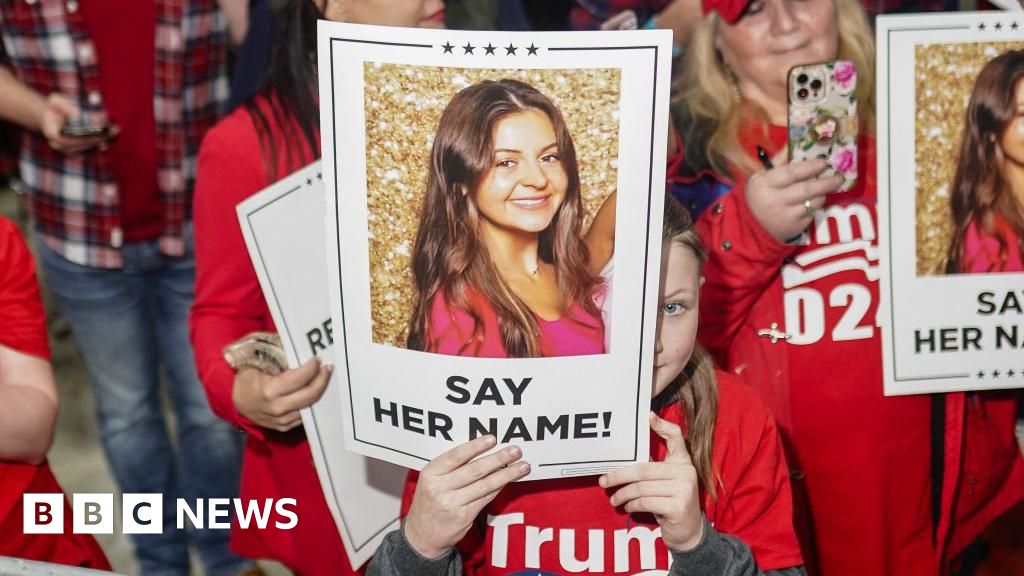ARTICLE AD BOX
Juneteenth is a celebration of the freedom, culture and empowerment of African-Americans.
Two years ago President Joe Biden signed the Juneteenth National Independence Day Act, which establishes a holiday that commemorates the end of slavery in the US.
So what is Juneteenth, how did it become a holiday and how can you celebrate it?
What is the origin of Juneteenth?
On 19 June 1865 - months after the northern US states defeated the slave-owning South in the US Civil War - enslaved African-Americans in Galveston, Texas, were told they were free.
That act of liberation came more than two and a half years after President Abraham Lincoln issued the Emancipation Proclamation, declaring all enslaved people in the rebellious states to be free.
The declaration by General Gordon Granger to bring the Emancipation Proclamation into effect in the state of Texas is seen by many as the end of slavery.
The day became known as Juneteenth, a word created by joining the words "June" and "nineteenth" together.
How is it celebrated?
Juneteenth celebrations and traditions vary across the US. In some states there are parades, festivals and block parties where people gather to share food and play games.
As well as public readings and singing, picnics and church services, in some states rodeos, contests, concerts and parades are also organised.
Food also plays an important part, with barbecues being one of the most popular ways of marking the day with family and friends.
Here are a few ways people are participating this year:
- Hosting a cookout or block party with friends and family
- Eating barbecue, the popular southern dish enjoyed by many Texans
- Joining virtual Juneteenth celebrations
- Shopping at black-owned businesses
The battle over what's taught in US history class
How did it become a federal law?
Juneteenth was first recognised as a state holiday in Texas in 1980.
In the decades since, every state but South Dakota formally recognised Juneteenth as a state or ceremonial holiday.
When he was senator for Illinois, Barack Obama co-sponsored legislation to make Juneteenth a national holiday, but the law was never passed - even after he became president.
Image source, Getty Images
Image caption,US lawmakers hold the holiday's official flag after the law passed Congress
But the legislation gained momentum after Black Lives Matter protests around the country in the summer of 2020.
In the lead-up to 19 June 2021, both chambers of the US Congress moved swiftly to pass the bill and - with the signature of President Biden, it became law.
It is the first new federal holiday since Martin Luther King Jr Day was established in 1983.
The attempts to have Juneteenth declared a federal holiday were, however, decades in the making.
In 2016, 89-year-old Opal Lee walked from Texas to Washington DC to raise awareness and encourage lawmakers.
She walked 2.5 miles (4km) each day - representing the two-and-a-half years it took for enslaved people in Texas to learn they had been freed.
"I've got so many different feelings all gurgling up in here," Ms Lee said after Congress approved the new federal holiday.
"I don't know what to call them all. I am so delighted to know that suddenly we've got a Juneteenth.
"It's not a Texas thing or a black thing. It's an American thing."
Image source, Getty Images
Image caption,A Juneteenth celebration at the memorial to George Floyd in Minneapolis
Why does Juneteenth matter?
The ending of slavery did not do away with racism, and in the years after emancipation, so-called Jim Crow laws were created to separate black people from white society and limit their civil rights.
The legacy of those laws is still being dismantled.
The deaths of George Floyd, Breonna Taylor and other African Americans at the hands of police have spurred anti-racism protests.
It also comes as a cultural debate rages over the history of slavery and how it should be taught in American schools.

 1 year ago
28
1 year ago
28








 English (US)
English (US)